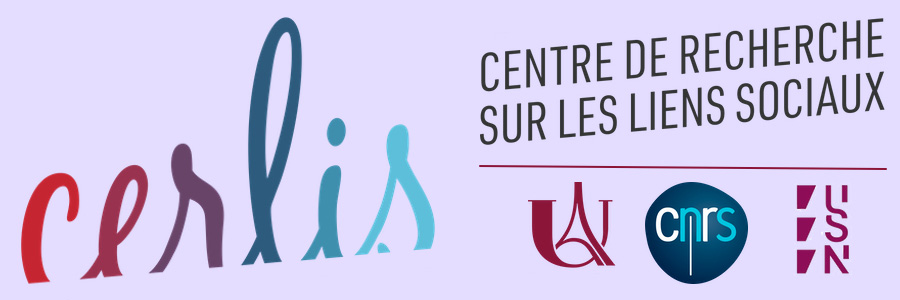CULTURE, MEDIA, SOCIAL INTERACTION
Headed by: Hervé Glévarec, Cécile Prévost-Thomas
Researchers in ‘Culture, Media and Social Interaction’ analyse social relations and the processes of communication and mediation in the arts, culture and the media, taking into account the actors, institutional strategies, and technological changes involved. Their work is multidisciplinary, spanning sociology, economics, anthropology, political science, and information science. They study social links through artistic and cultural practices, and the evolution of museums of the circulation of cultural goods on a global scale. They also explore the construction of information and political discourse, as well as the transformation of values, practices and social movements through the media.
EDUCATION, SOCIALIZATION, STAGES OF LIFE
Headed by: Christine Barats, Gaële Henri-Panabière
‘Education, Socialization, and Stages of Life’ encompasses multidisciplinary research in anthropology, history, education science, sociology, and information science. Its varied research fields, methods of investigation and subjects focus on social inequalities, therapeutic education for young people, the challenges of educational systems, and the renewal of forms of education. Two current projects aim to explore peer-assisted learning and the use of videos in education. The team also organizes seminars such as Education Mondays, in collaboration with other research units.
FAMILY, INDIVIDUALIZATION, INSTITUTIONS
Headed by: Jennifer Bidet, Elsa Ramos
Research in this area focuses on changes in family and personal ties, influenced by individualization and various institutions (schools, the judiciary, etc.). It examines changes in family forms (single-parent, blended, same-sex-parents, etc.) and the social relationships they reproduce. Particular attention is paid to inequalities related to gender, class and origin, and the effects of public policies on families, especially those of foreign origin or those in precarious situations. This includes forms of negotiation around norms – and even resistance to them.
WORK, CLASS, LIFESTYLES
Headed by: Emmanuel de Lescure, Delphine Serre
Research on ‘Work, Class and Lifestyles’ analyses work not as an end in itself, but in relation to other spheres of life and to social divisions: class, gender, origin. The tensions and continuities between the professional and non-professional spheres are investigated, as well as the impact of unequal employment conditions on career paths. The common thread running through future research will be the meaning of work, encompassing various modes of subjective engagement with it. Studies will focus on a variety of professions, examining issues such as loss of control over , worsening employment conditions, and lack of recognition. Collective research on the changing meaning of work itself in times of crisis, beyond the younger generations, is currently underway.
DIGITAL SOCIAL TIES
Headed by: Eric Dagiral , Coralie le Caroff
Remote information and communication technologies play a crucial role in family relationships, education and work. Drawing on empirical inquiry, CERLIS researchers examine these technologies – which are neither determinant nor neutral – in the context of social practices. Their work focuses on socio-numeric networks, political practices, and the tensions between public and private life. This research falls under two collective projects: the ANR Quantiself project, which looks at the quantification of individuals, and the ‘Apprendre par la bande’ (‘Learn from ’) project, which focuses on amateur educational videos. These surveys combine qualitative and quantitative methods to analyse social dynamics and the reconfiguration of practices.
GENDER RELATIONS
Headed by: Rebecca Rogers
The Gender Studies team seeks to understand the creation, persistence and evolution of social hierarchies and relations of power and domination in all spheres of society, including the social sciences. Researchers draw on the work of the MAGE (Gender and the Labour Market) network and its journal Travail, Genre et Société (Work, Gender and Society), and organize meetings on a variety of topics such as , the division of labour in married couples, gendered access to education, and in the global South. The research also explores the effects of public policies on equality, gender-differentiated practices and socialization, highlighting social hierarchies and power relations.
